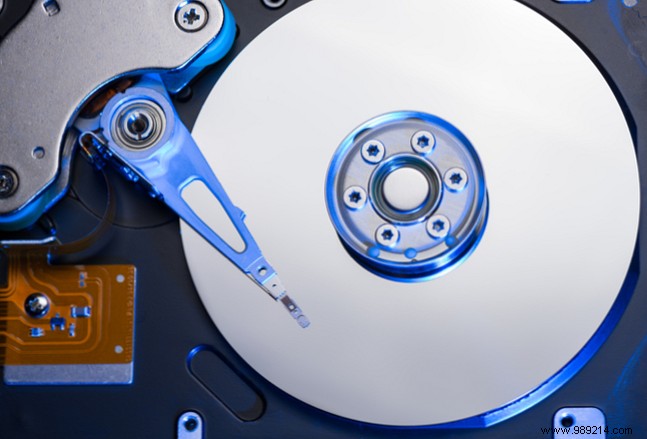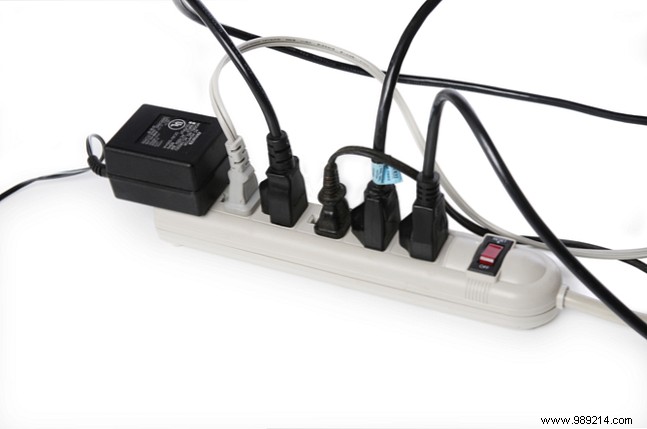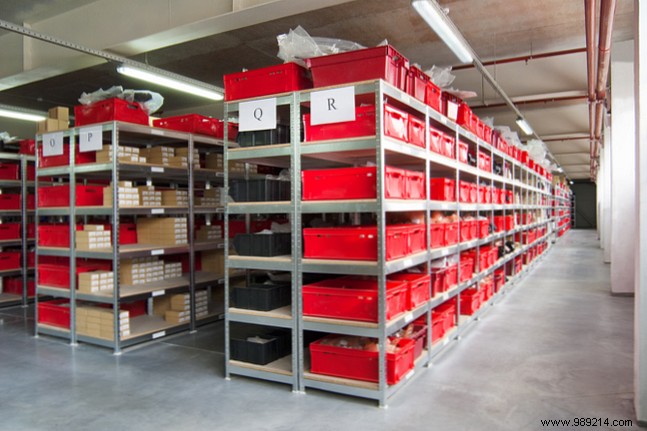With a recent deluge of floods around the world, many people are trying to figure out how to minimize water damage to their homes. In addition to protecting your home, you'll want to protect your valuable possessions. And in many cases, electronics are one of the most valuable items we own.
That's why we've put together seven tips to protect your electronics from flood damage. There's no way to guarantee your devices won't be damaged, but you can significantly improve your chances by following these steps.
Note: Your own security is more important than your Kindle, phone, or computer. Read the Red Cross Flood Safety page to see how you can stay safe.
Yeah, losing your computer, DSLR, or phone would suck. But it is what it is in Those devices are the most important. So make sure to backup everything.

We recommend the 3-2-1 backup system. Create three backups of everything. Use two different media to store them. And an off-site storage solution.
The easiest way to make sure your data is safe is to use an automatic cloud-based backup solution How to Backup Your Windows Computer to the Cloud How to Backup Your Windows Computer to the Cloud The Cloud storage is convenient for data backups. But should you use Dropbox, Google Drive, OneDrive, or Crash Plan? We will help you decide. Read more . It will back up everything on your computer, and you won't have to lift a finger after setup. You can install similar systems for your phone. However, you will need to make sure your photos are backed up from your camera.
You will know if a hurricane is about to hit your house. And chances are you'll be warned if a flood is coming. But things can happen fast. Maybe a pipe broke in your basement. Or you live in the desert, where flash floods can happen quickly.
No matter the case, being prepared will help you stay ahead of water damage. Many smart home systems include humidity sensors that will send you an alert when they detect more water than usual. This may give you enough of a head start to get back home before things get out of hand.
And you don't have to spend a ton of money to get one instead, either. There are many options available for less than $40.
Insteon 2852-222 Wireless Water Leak Sensor, Use with Bridge for Smartphone Alerts, Uses Superior Mesh Wireless Technology for Unsurpassed Reliability - Better than Wi-Fi, Zigbee and Z-Wave Insteon Wireless Water Leak Sensor 2852-222, used with Bridge for Smartphone Alerts, uses superior mesh wireless technology for unsurpassed reliability, better than Wi-Fi, Zigbee and Z-Wave Buy Now On Amazon $34.47
Although it won't help you in a flood, a smart water valve Install a smart valve and stop your basement from flooding Install a smart valve and stop your basement from flooding from the team? Of course, I am talking about smart water valves. Read More
If your flood sensor goes off and you rush home to move your computer tower off the floor, it's already too late. So think ahead. Walk around your house and see how many electronics are on the floor.
There's a good chance your computer is under your desk. Your PlayStation or Xbox could be on a low shelf on your TV stand. You can leave your phone or Kindle on the floor next to your bed while it charges. You probably also have a bunch of power strips on the ground.

All of this could be damaged in a flood or if a leak occurs. Try to keep the entire floor at least a couple of inches. If you're in a flood situation and can't get your electronics out of the house, raise them as high as possible.
If your home is being threatened by a flood or leak, one of the first things you should do is unplug everything. Some electronic devices can survive a bit of water if there is no power running through them.
Computers, game consoles, phone chargers, kitchen appliances, surge protectors Do you really need a surge protector? Do you really need a surge protector? A surge protector is not the same as a power strip! Here's how they're different and why you need surge protectors instead, as well as how to choose a good one. Read More This can also help keep responders safe by reducing the chance of current running through the water (if you can completely turn off your power, that's a good idea, too).
If you have time to prepare, you can store your electronics to reduce the risk of water damage. Put each device in a waterproof resealable bag, and put those bags in a waterproof container.
Obviously, you'll only be able to do this if you have time to prepare, which means if you have a surprise leak or flood, you probably won't be able to bag your devices. However, you can go one step further and keep the devices you are not using in waterproof containers, just in case.
Keep extra chargers, devices you don't use regularly, and anything else that's convenient in a container like this:
IRIS 46 Quart WEATHERTIGHT Storage Box, Clear IRIS 46 Quart WEATHERTIGHT Storage Box, Clear Buy Now On Amazon $27.97
It will be one less thing to worry about if water damage is likely.
While leak sensors are designed to detect water, your other smart home sensors may not be waterproof. Which means you'll want to remove as many of your devices as possible from door jambs, windows, and anywhere else you've installed them.
To make this easier, keep a list of where all your sensors are. Keep the list with your emergency kit. (If You Don't Have an Emergency Kit, It's Time to Make One When Disaster Strikes:Putting Together a Basic Emergency Toolkit When Disaster Strikes:Putting Together a Basic Emergency Toolkit Read More!)
Now, if you need to get your electronics together quickly, you won't have to search around for your sensors.
If your home is affected by a flood, you may not have much time to prepare. But if you do, the best thing you can do is remove as much of your valuable electronics from your home as possible. Store them in waterproof containers and move them to another place.

Of course, this will not always be possible. But it's the best solution you have, so if you have time to prepare, it's worth doing. If you are being evacuated and you can, you can take at least a few things to take with you.
Of course, your number one priority in a flood situation is staying safe. No matter how valuable your electronic devices are, it's not worth putting yourself at risk.
Have you had to protect your electronic devices from water damage during a flood? What did you do? Share your stories in the comments below!